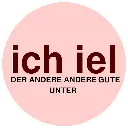- 2 Posts
- 71 Comments
Wenn man Gicht kriegen kann, kriegt man auch von Bier Gicht. Ist also eher ein Argument für die Gleichheit der gelben zuweilen schäumenden Flüssigkeiten
@wintermute@feddit.de – Inhaber von feddit.de – ist seit Monaten verschwunden und niemand weiß nix von ihm, außer dass er auf Geschäftsreisen in Asien sein soll. Daher ist kürzlich das Gerücht aufgetaucht, er sei in Nordkorea.

 252·5 months ago
252·5 months agoAFAIK, clamAV hunts Window viruses, not Linux malware. The linux equivalent I know of is rkhunter.
 2·5 months ago
2·5 months agoOne issue often overlooked with prostate enlargement is Nykturia. Nykturia causes sleep deprivation, sleep deprivation causes scores of other problems from cardiac issues to psychosis. I’d say ~ 3 times getting up during the night might be tolerable for most peope, > 5 times will cause problems.
“Bare Metal Linux”. I like it!

 3·6 months ago
3·6 months agosearx is around for a couple of years now.
Actually no. A transsternal access to the heart is impossible with stone tools, even obsidian. Middle american ritual sacrifices were performed transphrenic – they had less problems with the complications of that access as they didn’t intend their victim to survive, in contrast to — most — modern surgeons.

 2·6 months ago
2·6 months agoThe Danish–Canadian Whisky War. It’s the only war I’m sad that it ended. Well, on the other hand, We’ve got a land border with Canada now.
- As before but also scan your receipts, and add the info on each receipt to the form. Can done easily via an app, which handily (sometimes correctly) can autofill the needed info. You can do this at any point in time, so you can do it whenever you get a deductible receipt.
I’m so envious!
Outies and innies? I like that!

 1·7 months ago
1·7 months agoGood to know. Thank you for the opportunity to spill useless knowledge.
By the way, did you know that before laurentian mammalian carnivores made it to South America, three meter high terror birds were the apex predators there?
And that, birds being therapods and there existing more bird species than mammsluan species, the Age of Dinosaurs is actually still ungoing?

 2·7 months ago
2·7 months agoIf the lecturer hasn’t got the notice books can be cheaply printed and purchased nowadays, probably yes. What is this digital your speeking of?

 2·7 months ago
2·7 months agoBirds are dinosaurs, and they’ve got feathers because dinosaurs had feathers. This “bird” has a teethed snout, not a beak, and the proportions of feet and feathered arms are not that of a recent bird. Feet are too muscular, arms are armsn not wings. It’s clearly depicting some raptor-like dinosaur according to the current knowledge about them.

 2·7 months ago
2·7 months agoWell – they’d have to lurk like loitering munition – cruising.
I think it looks far more like an ekranoplane than a submersible craft. The 10 passenger + 1 pilot capacity is interesting in that context: according to the source of all wisdom and knowledge, the international rules for ground effect vehicles apply only to crafts carrying 12 passengers and more.

 3·7 months ago
3·7 months agoWith these wings they are probably using negative hydrodynamic lift to stay underwater?

 46·7 months ago
46·7 months agolegere (lat) to read => lectura (lat) the reading event => lecture (en) => lecturer (en) a person giving/hosting a reading event.
A lecturer is supposed to read the text of a book to students so that they are able to write it down and obtain a copy of it for themselves.
Books written by professional scribes are incredible expensive, and this new thing they established in Bologna in 1088 – the so called “universities” offering lectures will be a major breakthrough in the history of mankind to distribute knowledge!
Good to know some professors still honour the only true way of teaching.
Which FOSS video editor did you find?





Superficially, typing <Ctrl>+<left> seems to be the same as typing <Esc> <b>, but these are two completely different paradigms of using the editor.
Vim does not use shortcuts or hotkeys to edit the text, it uses a language to communicate with the editor.
For me, shortcuts and hotkeys are rote memorization, and I’m bad at rote memorization – compare your point “5. Ctrl-{ or } does this I think”. Do I need Ctrl-left, Super-left, Alt-left, Shift-left or Ctrl-Shift-left to jump back a word?
The vim editing language is mostly consistent and logical. I did not need to memorize it, I could learn and understand it. But that’s just me.
Far too much examples:
Most commands are abbreviations – a for append, b for back, c for change, d for delete, e for end of word, f for forward, g for goto (and more), hjkl are special, i for insert, m for mark, n for next, o for open line, p for paste, q for reqord macro is a strange spelling, r for replace, s for substitute, t for to, u for undo, v for visual mode, w for word, x for extinguish, y for yank, z is just a prefix for arcane stuff. Capital letters are usually variants of their minuscle counterpart – like A for append at end of line.
Commands take a repeat count, and a lot of commands take objects/movements, and these reuse the commands, like “delete inside backticks” => di`, “yank inside brackets” => yi{, “change up to third slash” => c3t/
If you are fluent in vim, you won’t type shortcuts while editing, you will talk to your editor.
As for more compelling examples:
“I’d like to change the next 2 sentences” translates to )c2)
“Please format this paragraph.” translates to gqap
“Swap these two characters.” translates to xp
And I did not touch ex mode, vimscript and plugins yet.